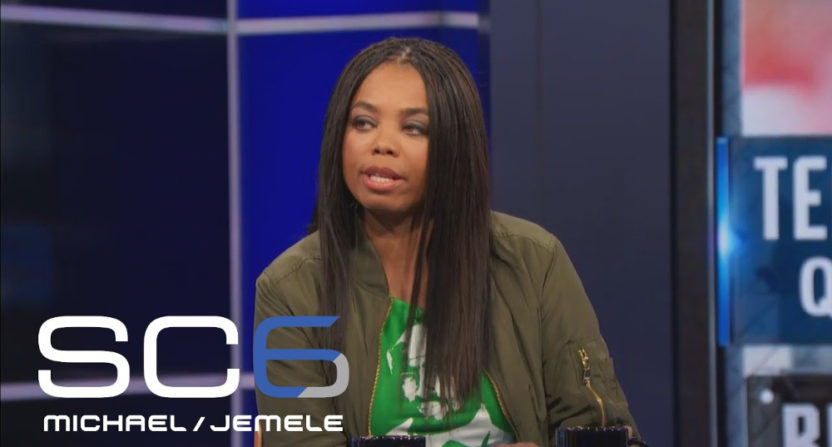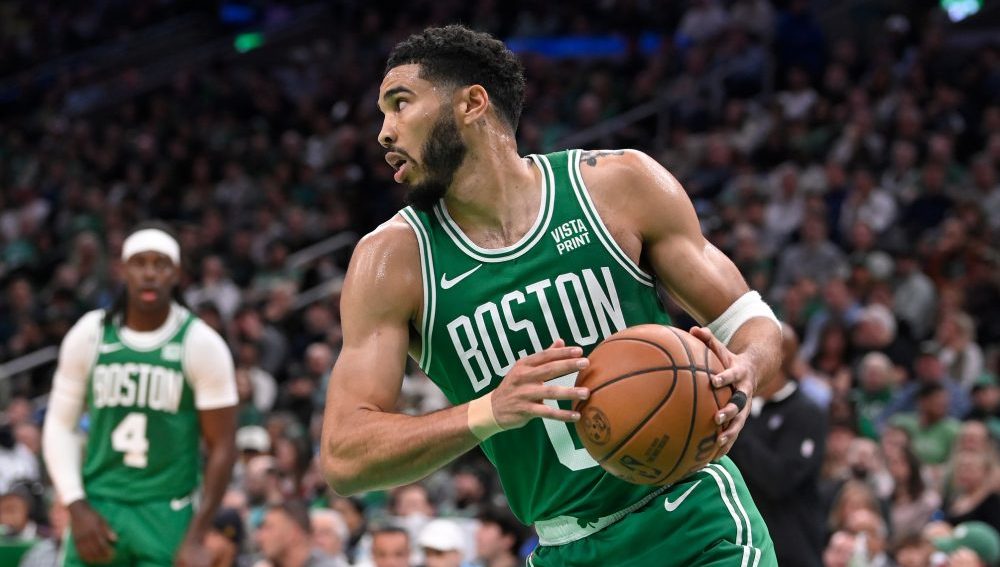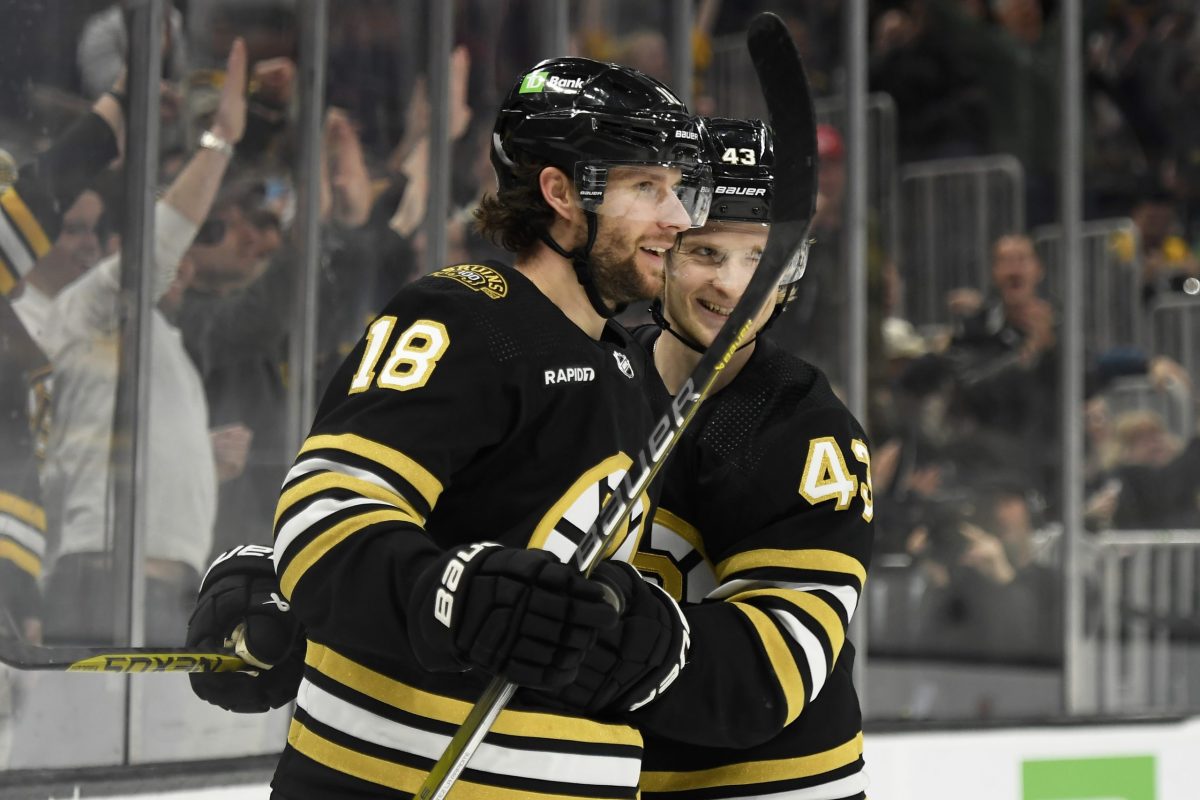ESPN may not have faced a more explosive controversy this year than the one(s) surrounding SportsCenter anchor Jemele Hill’s tweets.
Quick recap: In September, Hill tweeted that President Trump was a white supremacist, sparking full-throated outrage from conservatives. ESPN reprimanded Hill, but didn’t suspend her, leading the White House to call for her firing. Weeks later, Hill tweeted that fans should boycott Dallas Cowboys sponsors after team owner Jerry Jones voiced opposition to national anthem protests. For that, she was suspended for two weeks.
On Monday, Jim Miller debuted the second season of his “Origins” podcast series, which will spotlight various facets of the ESPN empire. Miller’s first episode focused on ESPN’s history with social media, which meant lots of talk about the Hill saga.
The most interesting soundbites from the 90-minute episode concerned Hill’s comments about Jones and the Cowboys’ sponsors. Hill said she thinks her comments about sponsors would have gone practically unnoticed if she had made them on television instead of on Twitter where they became easy fodder for people who were looking for reasons to criticize her.
“The tweets that I had about Jerry Jones and the NFL and the anthem protests, if I make that point on television, I don’t think it creates a firestorm at all. Because people tend to pick up on the nuances of what I was trying to say, and it’s something I’ve actually said on television before, and nobody wrote about it. Not specifically related to Jerry Jones but just in general when it came to the NFL and the anthem protests and even when it came to domestic violence and when it came to concussions. The thing about Twitter is that tweets give certain outlets cheap, easy headlines. Really good clickbait. And they don’t really care about the nuance of what you’re trying to say on Twitter.”
[…]
“I never intended for it to create the firestorm that it did. I thought I was tweeting something pretty benign. And it was something I planned to say on television that day or the next evening … and I think the controversy and the spectacle of my tweets about Donald Trump hadn’t quite worn off, my mistake was not understanding that that was going to bring about an entirely different and new level of scrutiny, as naive as that sounds. I’m used to getting scrutinized. It’s part of the job and part of the position. But once those Trump tweets got out there, that brought a whole new audience that was kind of paying attention to things I was saying, and I was just as surprised as anyone.”
The latest
“I did apologize to Skipper, I apologized to my colleagues on our show, to Michael. And not about the content of what I said because that I was frankly never going to apologize for. So it wasn’t the content of what I said, it was the position it unfortunately put everyone in.”
ESPN president John Skipper, who resigned from the network Monday, citing substance abuse issues, seemed hesitant to address the Hill situation directly, but responded to a question about her suspension by saying he sometimes feels like he has let down people who work for ESPN.
“I generally have had the ability to remain calm, but I must confess there’s been a significant amount of stress in dealing with situations where it’s very difficult to parse what the right thing to do is in a very complicated environment. It’s frustrating.”
Hill acknowledged the need for “compromise” between her most unfiltered self and what she shares on social media.
“I would love to go on Twitter and drop 70 f-bombs. Would love to do it. Would love to. But I know that’s not realistic, so I do know there’s a lot of compromise that can be reached without me compromising myself. Because I’m never going to do that. I’m not gonna compromise myself, I’m not gonna compromise my integrity. ESPN knows that, they respect that, they helped to nurture that. But I also am understanding, just as a business professional and as a journalist the position that they’re in as well. It’s not so much about answering to the money side of things, it’s about strictly sticking to the journalism side of it. It’s about making sure we’re responsible in our commentary.”
The entire “Origins” episode is worth a listen. ESPN now has a new set of social media guidelines, but Hill certainly won’t be the last to run afoul of The Worldwide Leader’s ever-evolving standards.
[Origins]







